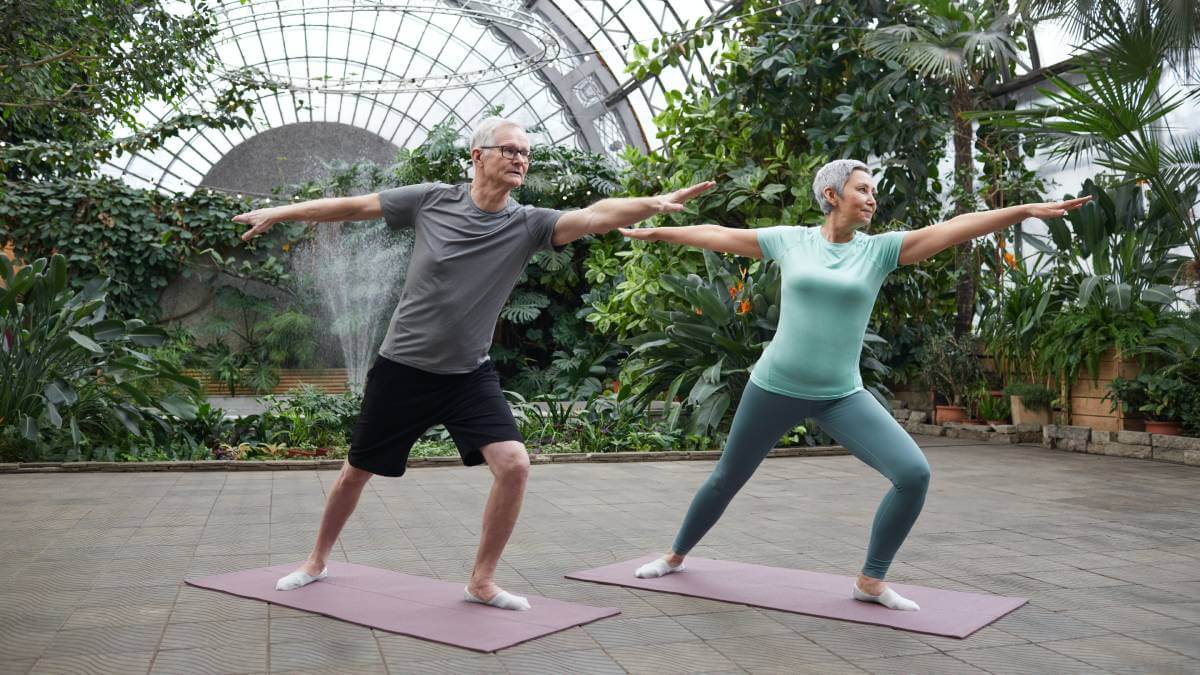Looking after your health is the most important job you’ll ever have, but things can get more complicated after turning 50.
Here are some of the most common health mistakes that people make in older age and how to avoid them.
Allowing social connections to dwindle
It’s understandable that life can become hectic, making it tempting to stay home instead of socialising. However, maintaining social connections is vital for your overall wellbeing, as loneliness can significantly impact your physical and mental health.
Research from 2018 revealed that chronic loneliness can even double the risk of dying from cardiovascular disease. The National Institute on Aging also notes that social isolation is linked to increased risks of depression, cognitive decline, obesity, heart disease and a weakened immune system.
So, make a conscious effort to stay connected by using social media if needed, but also prioritise meeting people in person whenever possible.
Eating a lot of high-sodium foods
While blood pressure tends to increase with age in most western countries, there are nations where this trend does not occur.
The reason for this difference lies in the diets consumed by residents of these nations, which are generally low in salt, according to the Centers for Disease Control and Prevention (CDC).
Salt accounts for about 90 per cent of the sodium we consume. Reducing your salt intake for even a few weeks should mean your blood pressure should fall. That’s good news for your heart health, and you’ll reduce your risk of fatal heart disease and stroke too.
Delaying available cancer screenings
In Australia, it is recommended that all adults between the ages of 50 and 74 undergo colorectal cancer screening, according to the guidelines provided by the Australian government.
The decision to screen individuals older than 74 is based on individual circumstances, considering the potential risks and benefits.
Screening plays a crucial role in detecting precancerous polyps, which are the primary precursors of colorectal cancer.
Neglecting strength training
As you age, your bones often weaken, and the number of fractures or breaks in the elderly population is a growing concern among medical professionals. So don’t neglect the weight room – it’s not just a place to get buff, it’s a vital way to strengthen your bones and keep osteoporosis at bay.
Using free weights, resistance bands or even your own body weight when you exercise will not only strengthen muscles, but can also help you maintain bone density as you age.
Not drinking enough water
Proper hydration is widely recognised as crucial, but its significance extends beyond general wellbeing – it can be a matter of life and death. This is particularly true for children and older adults, who are most vulnerable to the severe consequences of dehydration.
According to the Mayo Clinic, older adults have a lower body water volume, are more likely to take medications that raise dehydration risks, and may have a diminished sense of thirst, leading to potential neglect of fluid intake. Severe dehydration can result in:
- life-threatening heatstroke
- urinary and kidney problems
- seizures
- hypovolemic shock (shock due to low blood volume).
The risk of dehydration significantly increases with age, so it is crucial to cultivate good hydration habits and keep them up.
Not quitting smoking
Quitting smoking yields significant benefits regardless of age. Even if you are over 50, you can enhance your health and potentially save your life by quitting smoking now.
Remarkably, the improvements can be swift. As per the American Cancer Society:
- Within 20 minutes of quitting, your heart rate and blood pressure start to drop.
- After a few days, the carbon monoxide level in your blood returns to normal.
- Between two weeks and three months of quitting, circulation improves, and lung function increases. Further improvements continue to accumulate in the following months. By one year after quitting, the risk of heart attack dramatically diminishes.
It’s important to be aware of the daily habits that could be affecting your health and to know that it’s never too late to make improvements.
Do you have any other tips that can help us stay healthy beyond the age of 50? Share your thoughts and advice in the comments section below.
Also read: Common health mistakes made by men
Disclaimer: This article contains general information about health issues and is not advice. For health advice, consult your medical practitioner.

